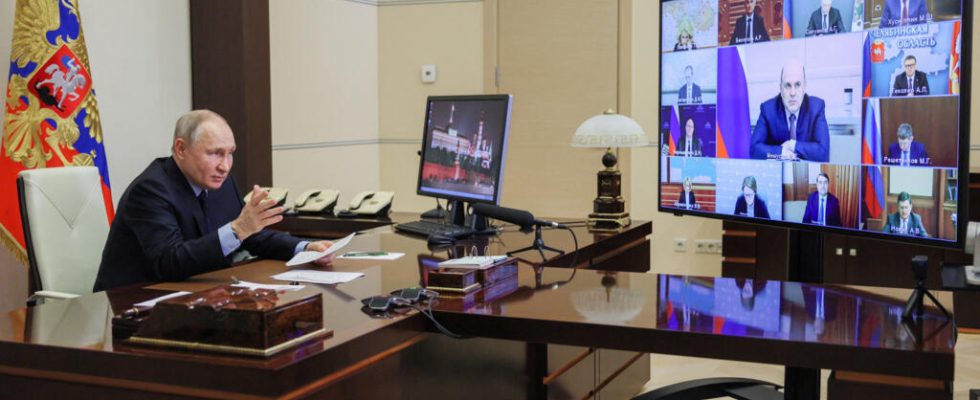So far, the Russian media have not missed an opportunity to illustrate the narrative of power: Western sanctions targeting Moscow for its offensive in Ukraine weigh just as much, if not more, on Western economies than on that of Russia. Change in the discourse of power: for the first time this Wednesday, March 29, Vladimir Putin declared that they were going to have an impact.
From our correspondent in Moscow,
For months, in Russia, each question put to power on the new Western sanctions received invariably or almost the same answer: “ They do more harm to the West than to Russia. »
From economic forums to speeches to entrepreneurs, the Russian president boasted the resilience of its economythe success of its eastward pivot.
That is to say if his change of tone this Wednesday, during a meeting with his ministers broadcast on television, is clear: “ You must act quickly, without bureaucracy or unnecessary delays. Because the illegitimate restrictions imposed on the Russian economy in the medium term can really have a negative impact on it. In this regard, we must ensure a sustainable increase in domestic demand. »
Low unemployment, controlled inflation
Vladimir Putin had however from the beginning of the conflict released the shock absorbers and dipped into budgetary resources, with in particular a rain of various allowances, partial unemployment when the factories saw their Western owners leaving.
Some indicators remain good, as the Russian president also underlines in his speech: unemployment is at its lowest level (3.6%) and inflation finally seems to be under control. When last year, it galloped to more than 20%, it should drop in March below 4% monthly in March.
Except that Western pressure is increasing. Turkey, Kazakhstan… these countries do not apply the sanctions (they are not the only ones), but they receive repeated messages, especially Americans, not to help Moscow to circumvent them. These two countries have indeed seen their bilateral trade with Russia explode in 2022.
► Read also: The flourishing trade between Moscow and Beijing irritates Washington
